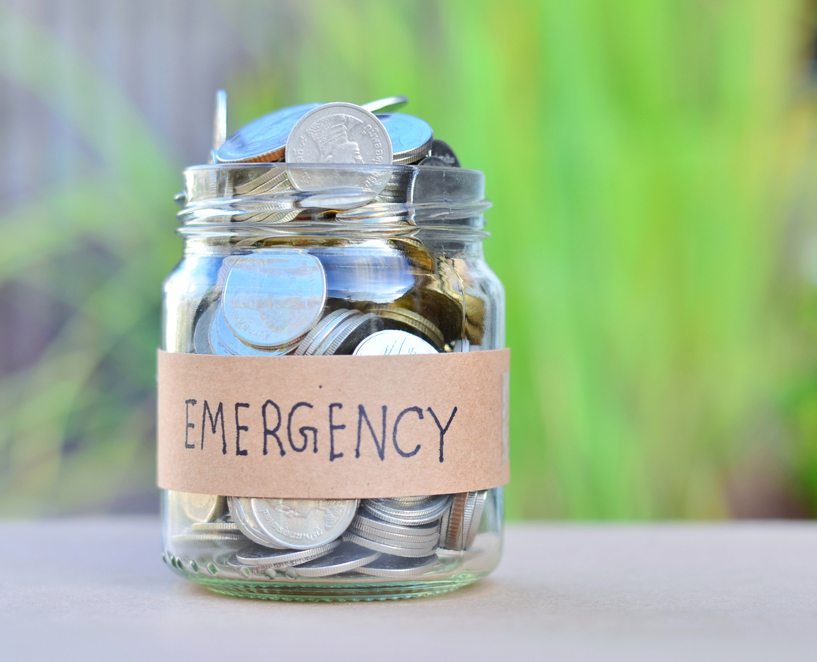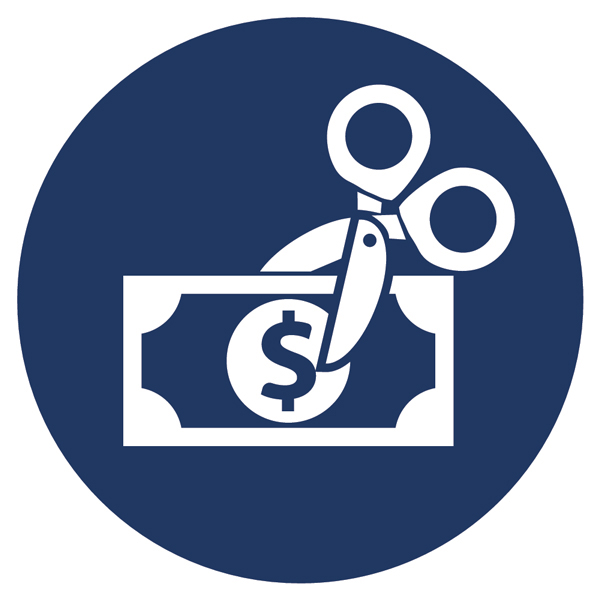Financial awareness extends beyond merely knowing what state your personal finances are in, although that’s certainly the start of becoming financially aware. The full scope of awareness includes being smart with money -- and that’s never more important than during a pandemic that has brought great economic uncertainty. To help celebrate National Financial Awareness Day on August 14th, we’ve compiled a step-by-step guide to becoming financially smarter during the COVID-19 pandemic.

Step 1: Shore Up Your Emergency Fund
 The COVID-19 pandemic is an emergency, and it certainly calls for having a sizeable emergency fund available. Even if you aren’t in a personal financial emergency now, you could face an economic crisis in the coming weeks, months or (perhaps) years. Until this pandemic is over and the economy is recovering, having access to savings will provide essential reassurance against what could go wrong.
The COVID-19 pandemic is an emergency, and it certainly calls for having a sizeable emergency fund available. Even if you aren’t in a personal financial emergency now, you could face an economic crisis in the coming weeks, months or (perhaps) years. Until this pandemic is over and the economy is recovering, having access to savings will provide essential reassurance against what could go wrong.
Depending on your current financial situation, there may be several ways that you can shore up your emergency fund:
-
Migrate the fund to a high-interest savings account: Your emergency fund should be in a bank account that’s only used for the fund so that it’s not accidentally spent, and one of the best types of accounts to use is a high-interest savings account. A high-interest savings account will pay a slightly higher interest rate than a checking account or a regular savings account, which will help your emergency fund grow a little
-
Contribute to the fund on a regular basis: Regardless of what you’re trying to save up for, developing the discipline to make regular contributions is essential. Every pay period or every month, make another contribution to your emergency fund.
-
Consider forestalling investment contributions: If you know you face an imminent financial crisis, consider forestalling investment contributions to your retirement or children’s college savings accounts. This should only be done with caution and on a temporary basis, for you don’t want to permanently stop investing. If you need more funds in the immediate future, though, this can be a way to quickly boost your emergency fund.
In general, building up an emergency fund that’s equal to between 3 and 6 months of your expenses is a good idea. As long as the pandemic continues, you might want to build up your emergency fund indefinitely so it’s even larger.
Step 2: Reduce Your Living Expenses
 Whether you need to build up an emergency fund or stretch one as much as possible, reducing your living expenses will let you save up more and survive longer on less. In addition to buying generic and using coupons, there are some additional ways to save money that are especially relevant right now:
Whether you need to build up an emergency fund or stretch one as much as possible, reducing your living expenses will let you save up more and survive longer on less. In addition to buying generic and using coupons, there are some additional ways to save money that are especially relevant right now:
-
Eliminate vacations: Vacations are a major expense of many people’s annual budgets, and they often need to be eliminated when expenses have to be cut back. With the crisis of COVID-19 continuing, this is an obvious expense to cut from your budget.
-
Stop dining out: Dining out is a larger discretionary expense in many monthly budgets, and it’s one that you can stop for now. While people have different assessments on dining and the risks of COVID-19, the economic benefit of eating at home is obvious. Purchase yourself a nice steak or fancy seafood to cook at home, and you’ll still spend less than what a restaurant meal costs.
-
Wait 24 hours before buying online: Online shopping can be seductive, and who hasn’t bought something they don’t actually need because it looked good or was on sale? To limit impulse buys online, leave everything in your shopping cart for 24 hours before you check out. If you still want it a full day later, go ahead and make the purchase. Many items won’t seem as necessary later.
Step 3: Pay Down Your Debt

If you have an emergency fund in place and still have extra money in your budget, work on reducing your debt load. This will both help you better navigate any personal financial crisis you might face and put you in a better financial position once the COVID-19 pandemic subsides. To pay down debt, you can:
-
Bring late payments current: Making extra payments on past-due secured loan(mortgage & vehicle) and utility (electric & gas) accounts will reduce late fees and give you more flexibility going forward.
-
Add funds to your debt settlement program: This strategy will allow you to take advantage of settlement oooprtunities that arise earlier in your program, shortening the length of your program.
-
Use the debt snowball method: The avalanche and snowball methods of paying down debt each have their merits, but the snowball method is better suited to an economically uncertain time. When you pay down your smallest debts first, you lower the monthly minimum payments you must make. Reducing these can help if you face a financial emergency.
Wherever you are financially, this is a time to improve your situation. Make efforts to improve your emergency fund, reduce your monthly expenses and pay down debt, and you’ll be more able to manage the COVID-19 pandemic’s economic fallout and succeed financially once this terrible pandemic is over






